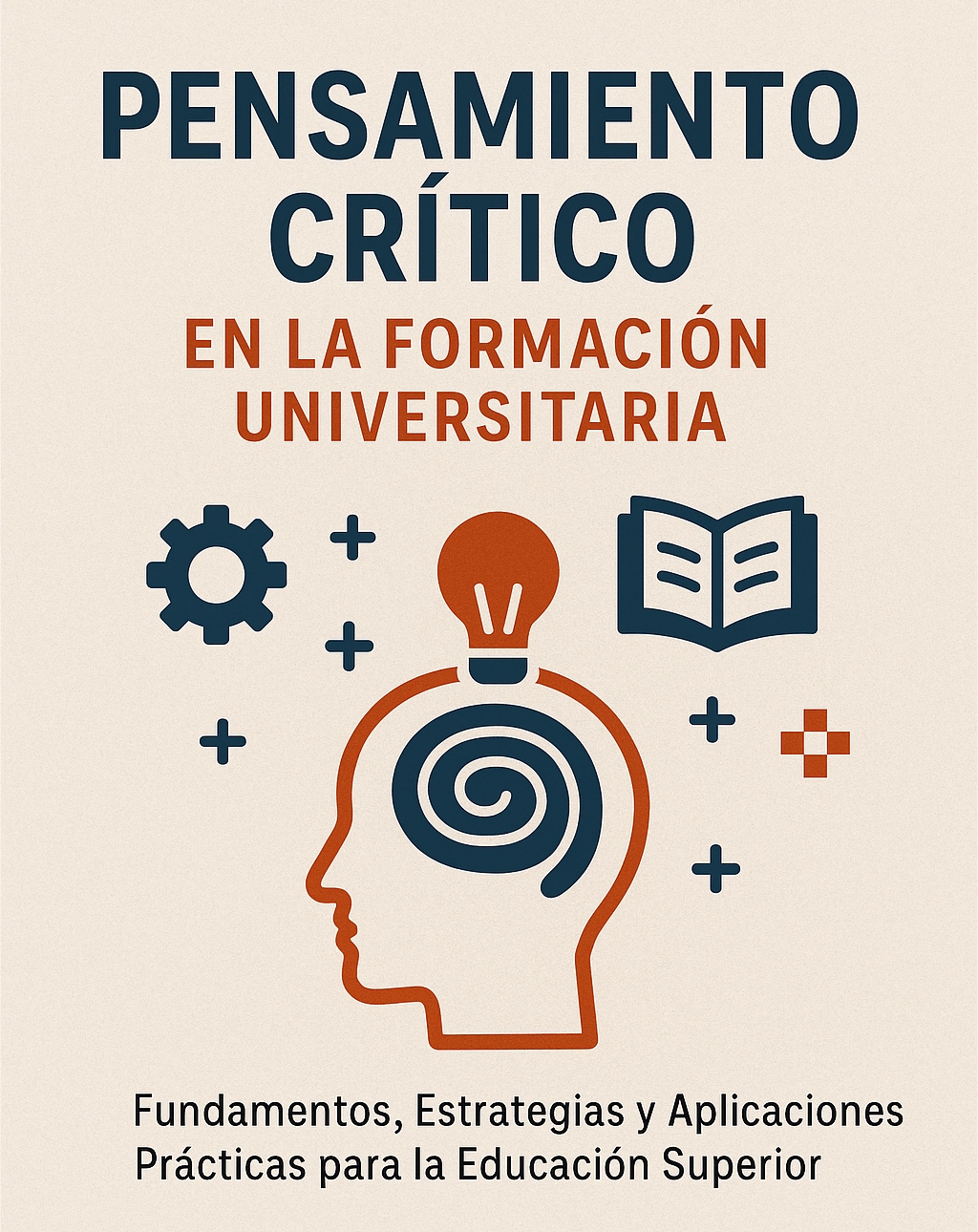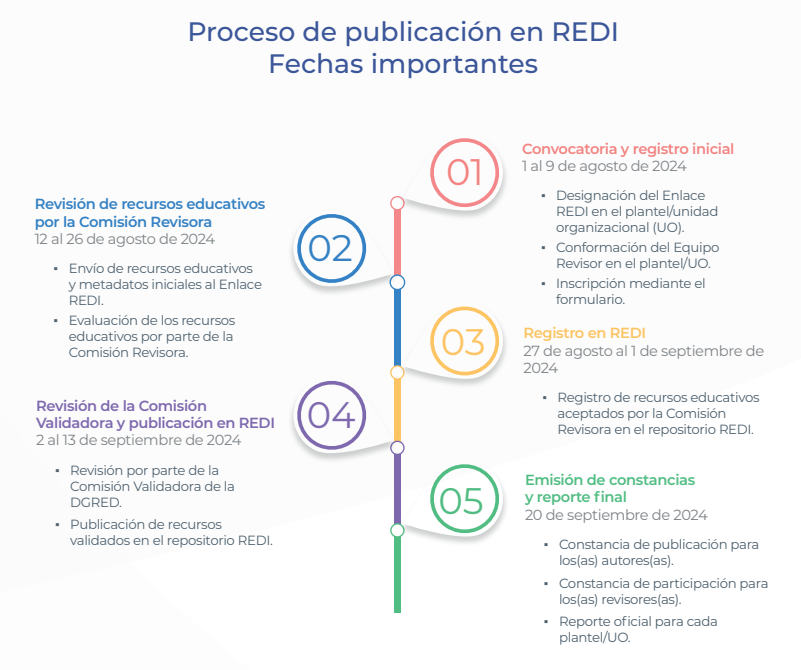Referencias consultadas:
Abrami, P. C., Bernard, R. M., Borokhovski, E., Waddington, D. I., Wade, C. A., & Persson, T. (2015). Strategies for teaching students to think critically: A meta-analysis. Review of Educational Research, 85(2), 275-314.
Alt, D., & Raichel, N. (2021). Higher Education Students' Reflective Journal Writing and Lifelong Learning Skills. Frontiers in Psychology, 12, 723933.
Aravena-Gaete, M., Campos-Soto, M. N., & Rodríguez-Jiménez, C. (2020). Learning strategies at a higher taxonomic level in primary education students in the digital age. Sustainability (Switzerland), 12(23), 9877.
Bezanilla, M. J., Poblete, M., Fernández-Nogueira, D., Arranz, S., & Campo, L. (2018). El pensamiento crítico desde la perspectiva de los docentes universitarios. Estudios Pedagógicos, 44(1), 89-113.
Choy, S. C., & Cheah, P. K. (2009). Teacher perceptions of critical thinking among students and its influence on higher education. International Journal of Teaching and Learning in Higher Education, 20(2), 198-206.
De la Puente, M., Torres, J., Troncoso, A. L. B., Meza, Y. Y. H., & Carrascal, J. X. M. (2024). Investigating the use of chatGPT as a tool for enhancing critical thinking and argumentation skills in international relations debates among undergraduate students. Smart Learning Environments, 11(1), 55.
Dweck, C. S. (2010). Even geniuses work hard. Educational Leadership, 68(1), 16-20.
Dwyer, C. P., Hogan, M. J., & Stewart, I. (2014). An integrated critical thinking framework for the 21st century. Thinking Skills and Creativity, 12, 43-52.
El Halfawy, M. I. (n.d.). DEVELOPING THE LEARNING OF CRITICAL THINKING IN HIGHER EDUCATION: A CASE STUDY BASED ON AN INTERNATIONAL UNIVERSITY IN EGYPT [Doctoral dissertation, University of Liverpool].
Ennis, R. H. (1989). Critical thinking and subject specificity: Clarification and needed research. Educational Researcher, 18(3), 4-10.
Ennis, R. H. (2011). The nature of critical thinking: An outline of critical thinking dispositions and abilities. Presentation at the Sixth International Conference on Thinking at MIT, Cambridge, MA.
Esquivelzeta Rabell, M., & Palacios Arreola, M. I. (2021). Didácticas para la enseñanza de las ciencias. El trabajo centrado en el alumno. En Estrategias para el desarrollo de habilidades de pensamiento.
Essien, A., Bukoye, O. T., O’Dea, X., & Kremantzis, M. (2024). The influence of AI text generators on critical thinking skills in UK business schools. Studies in Higher Education, 49(5), 865-882.
Facione, P. A. (1990a). Critical thinking: A statement of expert consensus for purposes of educational assessment and instruction (The Delphi Report). California Academic Press.
Ferrada, N., & Contreras, J. (2021). Aprendizaje Basado en Equipos: la perspectiva de los futuros profesores. Revista de Estudios y Experiencias en Educación, 20(42), 117-135.
Ferrada, N., & Figueroa, A. (2021). El Aprendizaje Basado en Equipos como vehículo para el desarrollo del Pensamiento Crítico. En Estrategias para el desarrollo de habilidades de pensamiento.
Flores-Noya, D., Moncada Sánchez, J., Aravena Gaete, M., & Mcguire, J. (2021). El desarrollo de habilidades superiores del pensamiento: experiencias desde el pregrado al postgrado. En Estrategias para el desarrollo de habilidades de pensamiento.
González, M. I., & Díaz Suazo, E. (2021). El diario reflexivo como dispositivo para desarrollar la competencia Pensamiento Reflexivo Docente basado en la experiencia prácticas pedagógicas. En Estrategias para el desarrollo de habilidades de pensamiento.
Hadiyanto, H., Failasofah, F., Armiwati, A., Abrar, M., & Thabran, Y. (2021). Students’ Practices of 21st Century Skills between Conventional learning and Blended Learning. Journal of University Teaching & Learning Practice, 18(3), 7.
Halpern, D. F. (1998). Teaching critical thinking for transfer across domains: Disposition, skills, structure training, and metacognitive monitoring. American Psychologist, 53(4), 449-455.
Jarpa Azagra, M., Haas Prieto, V., & Collao Donoso, D. (2017). Escritura para la reflexión pedagógica: rol y función del Diario del Profesor en Formación en las Prácticas Iniciales. Estudios pedagógicos (Valdivia), 43(2), 163-178.
Korthagen, F. A. (2010). La práctica, la teoría y la persona en la formación del profesorado. Revista Interuniversitaria de Formación del Profesorado, 68(24, 2), 83-101.
Mahdi, O. R., Nassar, I. A., & Almuslamani, H. A. I. (2020). The Role of Using Case Studies Method in Improving Students' Critical Thinking Skills in Higher Education. International Journal of Higher Education, 9(2), 297-308.
Marin, L. M., & Halpern, D. F. (2011). Pedagogy for developing critical thinking in adolescents: Explicit instruction improves student performance. Thinking Skills and Creativity, 6(1), 1-13.
Marzano, R. J., & Pickering, D. J. (2005). Dimensiones del Aprendizaje: Manual para el maestro. ITESO.
Ñúñez-López, S., Ávila-Palet, J., & Olivares-Olivares, S. (2017). El desarrollo del pensamiento crítico en estudiantes universitarios por medio del Aprendizaje Basado en Problemas. Revista Iberoamericana de Educación Superior, 8(23), 84-103.
Paul, R., & Elder, L. (2006). The miniature guide to critical thinking: Concepts and tools. Foundation for Critical Thinking Press.
Perry, W. G. (1999). Forms of intellectual and ethical development in the college years: A scheme. Jossey-Bass.
Pilz, M., & Zenner, L. (2018). The development of networked thinking in business education: an empirical study on the potential of case-study work. Teaching in Higher Education, 23(3), 307-324.
Puntambekar, S., & Hübscher, R. (2005). Tools for scaffolding students in a complex learning environment: What have we gained and what have we missed? Educational Psychologist, 40(1), 1-12.
Rothinam, N., Vengrasalam, R., Naidu, S., Nachiappan, S., & Jabamoney, S. (2025). Systematic literature review on critical thinking in higher education. Edelweiss Applied Science and Technology, 9(5), 2046-2063.
Sandoval Rodríguez, J. J. (2024). Manual de Pensamiento Crítico. UNICEF.
Schön, D. A. (1998). El profesional reflexivo: cómo piensan los profesionales cuando actúan. Paidós.
Shabani, K., Khatib, M., & Ebadi, S. (2010). Vygotsky's zone of proximal development: Instructional implications and teachers' professional development. English Language Teaching, 3(4), 237-248.
Sternberg, R. J. (1986). Intelligence, wisdom, and creativity: Three is better than one. Cambridge University Press.
Sternberg, R. J. (1999). Intelligence as developing expertise. Contemporary Educational Psychology, 24(4), 359-375.
Tantachuco, J. (2021). Desempeño docente y pensamiento crítico en la formación universitaria. Revista Innova Educación, 3(1).
Vivanco-Galván, O., Castillo-Malla, D., Suconota, E., Quizphe, R., & Jiménez-Gaona, Y. (2024). Enhancing mathematical function understanding in university students: a comparative study of design thinking vs. traditional teaching methods. Frontiers in Education, 9, 1364642.
Zapalska, A., Bugaj, M., & Zelman, N. (2018). Critical Thinking and Bloom’s Taxonomy: 21st Century Bloom’s Taxonomy for Business Education. E-Journal of Business Education & Scholarship of Teaching, 12(2), 37-48.
Zelaieta Anta, E., & Camino Ortiz de Barrón, I. (2018). The development of critical thinking in the initial teacher training Analysis of a pedagogical strategy from the students’ vision. Journal of Curriculum and Teacher Training, 21(3).
Zelaieta, E., Camino, I., & Zulaika, G. (2019). Development of critical thinking in future teachers through debates. Thinking Skills and Creativity, 33, 100584.
** Se empleo la IA de Google NotebookLM para generar las voces del audio




